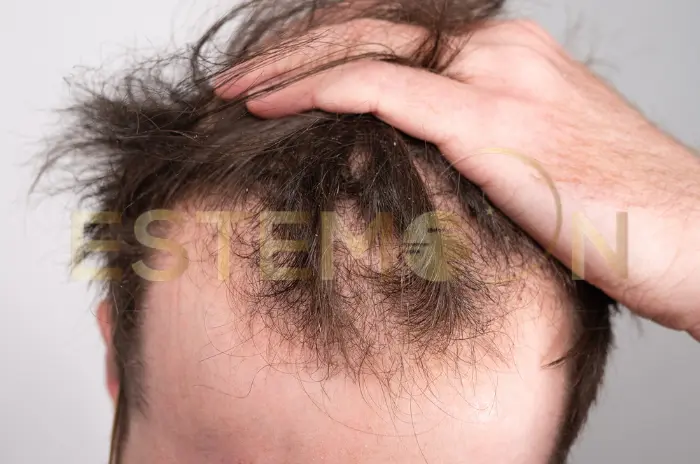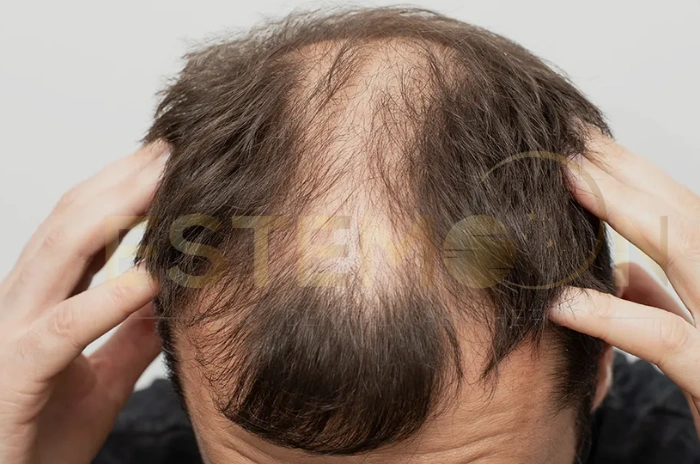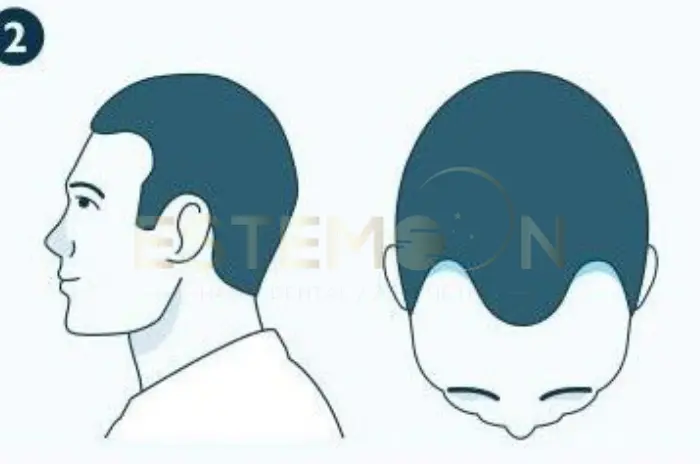Hair loss affects millions of people worldwide, and while genetics and aging are common culprits, vitamin deficiency hair loss is an often-overlooked cause that can be addressed through proper nutrition and supplementation. Understanding the relationship between essential nutrients and hair health is crucial for anyone experiencing unexplained hair thinning or shedding.
When your body lacks specific vitamins and minerals, it prioritizes vital organs over hair follicles, leading to weakened strands and eventual hair loss. The good news is that hair loss from lack of vitamins is typically reversible once the underlying deficiency is identified and corrected.

The Connection Between Vitamin Deficiency and Hair Loss
Vitamin deficiency hair loss occurs when your body doesn’t receive adequate amounts of essential nutrients required for healthy hair growth. Hair follicles are among the most metabolically active cells in the human body, requiring a constant supply of vitamins and minerals to function properly.
Several key nutrients play critical roles in the hair growth cycle. Iron deficiency hair loss is one of the most common forms, particularly affecting women of childbearing age. Iron helps carry oxygen to hair follicles, and when levels drop, hair growth slows significantly. This type of hair loss often develops gradually, making it difficult to identify until substantial thinning has occurred.
Vitamin B6 deficiency hair loss affects protein metabolism, which is essential since hair is primarily composed of keratin protein. Without adequate B6, your body cannot effectively process the amino acids needed for strong, healthy hair. This deficiency often occurs alongside other B-vitamin deficiencies, creating a compound effect on hair health.
Low ferritin hair loss is closely related to iron deficiency but specifically refers to depleted iron stores in the body. Even when iron levels appear normal on standard blood tests, low ferritin can still cause significant hair thinning. This condition is particularly common in women who experience heavy menstrual periods or follow restrictive diets.
The hair growth cycle consists of three phases: anagen (growth), catagen (transition), and telogen (resting). Hair loss and vitamin deficiency disrupts this cycle, often pushing more follicles into the telogen phase prematurely, resulting in increased shedding and reduced hair density over time.
Signs Your Hair Loss May Be a Deficiency
Recognizing signs of hair loss from deficiency early can help prevent extensive damage and promote faster recovery. Unlike genetic hair loss, which typically follows predictable patterns, deficiency-related hair loss often presents differently across the scalp.
Thinning hair from vitamin deficiency usually affects the entire scalp rather than specific areas like the crown or temples. You may notice your ponytail feeling thinner, more hair in your brush, or visible scalp through previously thick areas. This diffuse pattern is a hallmark of nutritional hair loss.
Hair shedding from vitamin deficiency often exceeds the normal 50-100 strands per day. If you’re losing significantly more hair during washing or brushing, this could indicate an underlying nutritional issue. Many people first notice increased shedding in the shower drain or on their pillowcase.
Other accompanying symptoms may include fatigue, brittle nails, pale skin, and difficulty concentrating. These signs often appear alongside hair loss when dealing with hair loss and vitamin deficiency issues. The presence of multiple symptoms can help distinguish nutritional causes from other forms of hair loss.
Changes in hair texture, such as increased dryness, brittleness, or loss of shine, frequently precede noticeable hair loss. Your hair may also grow more slowly than usual or fail to reach its previous length. Some people notice their hair breaks more easily or develops a coarse, wiry texture.
Hair loss and mineral deficiency can also cause changes in hair color, including premature graying or loss of natural highlights. These changes often reverse once nutritional status improves, though recovery may take several months due to the hair growth cycle’s natural timeline.
Why Zinc is a Key Mineral for Preventing Hair Loss
Zinc for hair loss prevention is crucial because this mineral plays multiple roles in hair health. Zinc helps regulate hormone levels, supports protein synthesis, and maintains the oil glands around hair follicles. This essential mineral is involved in over 300 enzymatic reactions in the body, many of which directly impact hair growth and maintenance.
Zinc deficiency hair loss typically presents as diffuse thinning across the scalp, though severe cases may develop patchy areas of hair loss similar to alopecia areata. This mineral is essential for DNA and RNA production, which directly affects hair follicle cell division and growth. Without adequate zinc, hair follicles cannot produce new cells efficiently.
The recommended daily zinc intake for adults is 8-11mg, but many people don’t consume enough zinc-rich foods. Oysters, beef, pumpkin seeds, and legumes are excellent sources of this vital mineral. Vegetarians and vegans are at higher risk for zinc deficiency due to reduced bioavailability from plant sources.
Zinc absorption can be hindered by certain foods and medications. Phytates in grains and legumes, calcium supplements, and some antibiotics can reduce zinc bioavailability, potentially contributing to zinc deficiency hair loss. Coffee and tea consumed with meals can also interfere with zinc absorption.
Supplementing with zinc should be done carefully, as excessive amounts can interfere with copper absorption and cause other health issues. A healthcare provider can determine appropriate dosing based on individual needs and deficiency levels. Typical supplemental doses range from 8-40mg daily, depending on severity of deficiency.

How to Know If a Vitamin Deficiency Is Causing Your Hair Loss
Determining if hair loss and mineral deficiency is the root cause requires careful observation and professional evaluation. Unlike androgenetic alopecia, which follows specific patterns, deficiency-related hair loss affects the entire scalp uniformly and may include changes in hair texture and growth rate.
Hair loss diagnosis through deficiency testing involves examining your medical history, dietary habits, and any recent changes in health or medications. Rapid hair loss following illness, surgery, or dietary changes often suggests nutritional causes. Stress, pregnancy, and certain medications can also deplete nutrient stores.
Blood tests can reveal specific deficiencies, but some nutrients like iron deficiency hair loss may require multiple markers including serum iron, ferritin, and total iron-binding capacity for accurate assessment. Single tests may not provide a complete picture of nutritional status.
Timeline is another crucial factor. Hair loss from lack of vitamins typically becomes noticeable 2-4 months after the deficiency develops, due to the hair growth cycle’s natural lag time. This delay can make it challenging to identify the specific trigger that caused the nutritional deficiency.
Response to treatment also helps confirm diagnosis. If hair loss stops and regrowth begins within 3-6 months of addressing the deficiency, this strongly suggests the nutritional factor was the primary cause. However, complete recovery may take 12-18 months for full hair density restoration.
Folic Acid Deficiency and Hair Growth Support
Folic acid hair growth support is essential because this B-vitamin plays a crucial role in DNA synthesis and cell division. Hair follicles require constant cell renewal, making adequate folate levels vital for healthy hair production. Folic acid works closely with vitamin B12 and iron to support red blood cell formation and oxygen delivery to hair follicles.
Folic acid deficiency can lead to reduced hair growth rate, premature graying, and overall hair thinning. This nutrient works synergistically with other B-vitamins and iron to support optimal hair health. Deficiency often develops gradually, making symptoms easy to overlook until hair loss becomes noticeable.
Pregnant women are at particular risk for folate deficiency, which can contribute to postpartum hair loss. Ensuring adequate folic acid intake during pregnancy and breastfeeding helps maintain healthy hair throughout these demanding periods. The increased nutritional needs during pregnancy can rapidly deplete folate stores.
Essential fatty acids hair loss often occurs alongside folic acid deficiency, as both nutrients support cellular health and inflammation control. Omega 3 deficiency hair loss can compound the effects of low folate levels, creating a more severe hair loss pattern than either deficiency alone.
Food sources of folic acid include leafy green vegetables, citrus fruits, beans, and fortified grains. Supplementation may be necessary for individuals with absorption issues or increased nutritional needs. Cooking can destroy folate, so raw or lightly cooked vegetables provide better nutrition.
How Doctors Diagnose Vitamin Related Hair Loss
Professional hair loss diagnosis begins with a comprehensive medical history and physical examination. Doctors look for patterns of hair loss, accompanying symptoms, and potential risk factors for nutritional deficiencies. Family history of hair loss, dietary restrictions, and medical conditions affecting nutrient absorption are all important considerations.
Laboratory testing forms the cornerstone of hair loss and vitamin deficiency diagnosis. Complete blood count, comprehensive metabolic panel, and specific vitamin levels help identify potential deficiencies causing hair loss. Testing typically includes iron studies, vitamin D, B12, folate, and sometimes zinc levels.
Specialized tests may include serum ferritin for iron deficiency hair loss, vitamin D levels, B12 and folate levels, and zinc status. Thyroid function tests are also important since thyroid disorders can mimic vitamin deficiency symptoms and may coexist with nutritional deficiencies.
Dermatologists may perform additional tests such as hair pull tests, dermoscopy, or scalp biopsies to rule out other causes of hair loss and confirm deficiency-related patterns. These tests help distinguish nutritional hair loss from autoimmune conditions or hormonal imbalances.
Treatment monitoring involves retesting nutrient levels after 3-6 months of supplementation and tracking hair regrowth progress. Successful treatment of vitamin deficiency hair loss typically shows improvement within this timeframe, though complete recovery may take longer depending on the severity of the deficiency.
Which Vitamin Deficiency Causes Hair Loss Guide – Frequently Asked Questions
What vitamin deficiencies can cause hair loss?
Iron deficiency hair loss, vitamin B6 deficiency hair loss, vitamin D deficiency, biotin deficiency, and zinc deficiency hair loss are the most common nutritional causes of hair thinning and shedding.
What are signs of a vitamin deficiency?
Signs of hair loss from deficiency include diffuse hair thinning, excessive shedding, brittle hair texture, slow hair growth, and accompanying symptoms like fatigue, brittle nails, and pale skin.
How do doctors diagnose hair loss deficiency?
Doctors use blood tests to measure nutrient levels including ferritin for iron deficiency hair loss, vitamin D, B12, folate, and zinc, combined with medical history and physical examination patterns.
Is zinc a key mineral for hair?
Yes, zinc for hair loss prevention is essential as it supports protein synthesis, hormone regulation, and oil gland function around hair follicles, making it crucial for healthy hair growth and maintenance.
Follow us on social media for updates, tips, and patient success stories:




